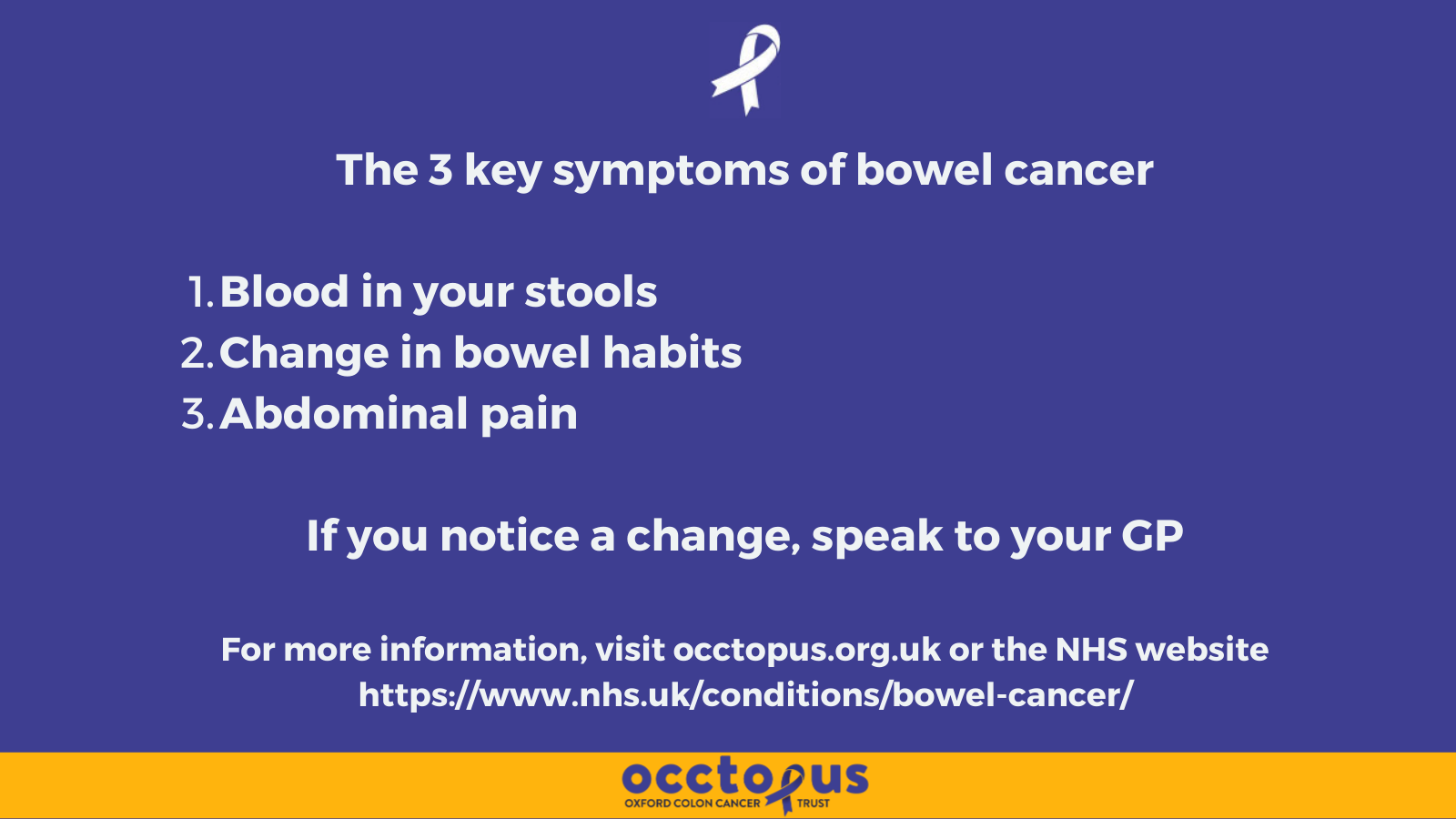Introduction
Early detection plays a crucial role in successful treatment and improved outcomes for bowel cancer, also known as colon or colorectal cancer. But what are the symptoms of bowel cancer to look out for?
In this post, we will explore the common signs and symptoms of bowel cancer, empowering individuals to recognise these warning signs and seek timely medical attention.
- Persistent Changes in Bowel Habits
One of the key signs of bowel cancer is a persistent change in bowel habits that lasts for several weeks. These changes may include:
- Diarrhoea or constipation that lasts longer than usual
- Alternating episodes of diarrhoea and constipation
- Changes in stool consistency, such as narrower stools or pencil-thin stools
- Rectal Bleeding or blood in poo
Unexplained rectal bleeding or blood in the stool can be an indication of bowel cancer. Blood may appear bright red or dark, and it can be mixed with the stool or seen on the toilet paper after wiping. It is important not to ignore any rectal bleeding, even if it is minimal.
- Abdominal Pain and Discomfort
Persistent abdominal pain or discomfort, particularly if it is accompanied by other symptoms, should not be overlooked. Bowel cancer can cause cramping, bloating, or a feeling of fullness in the abdomen. If the pain is severe, localised, or does not subside, medical attention is necessary.
- Unexplained Weight Loss and Fatigue
Unexplained weight loss and unexplained fatigue or weakness are potential signs of bowel cancer. If you experience unintentional weight loss without changes in diet or exercise, or if you feel constantly tired and lacking energy, it is important to consult a healthcare professional.
- Anaemia and Iron Deficiency
Bowel cancer can lead to chronic bleeding, which may result in iron deficiency anaemia. Symptoms may include persistent fatigue, weakness, pale skin, and shortness of breath. If you experience these symptoms, it is essential to seek medical advice for further evaluation.
- Changes in Bowel Movements
Other changes in bowel movements that may indicate bowel cancer include:
- Feeling that the bowel does not completely empty after a bowel movement
- Increased urgency to have a bowel movement
- Sensation of incomplete evacuation
- Changes in the frequency of bowel movements without any apparent cause
It is important to note that these signs and symptoms can also be caused by various other conditions, but it is always better to be on the side of caution and consult a healthcare professional for further evaluation.
Conclusion
Recognising the signs and symptoms of bowel cancer is vital for early detection and successful treatment. If you experience any persistent or unexplained changes in bowel habits, rectal bleeding, abdominal pain, unexplained weight loss, fatigue, or other concerning symptoms, do not hesitate to consult your healthcare provider. Regular screenings, such as colonoscopies, are also recommended for individuals at higher risk.
Remember, early detection can save lives. Listen to your body and prioritise your health. Together, let’s raise awareness about bowel cancer and encourage others to take proactive steps in their healthcare journey.
For more details, visit the NHS website https://www.nhs.uk/conditions/bowel-cancer/

